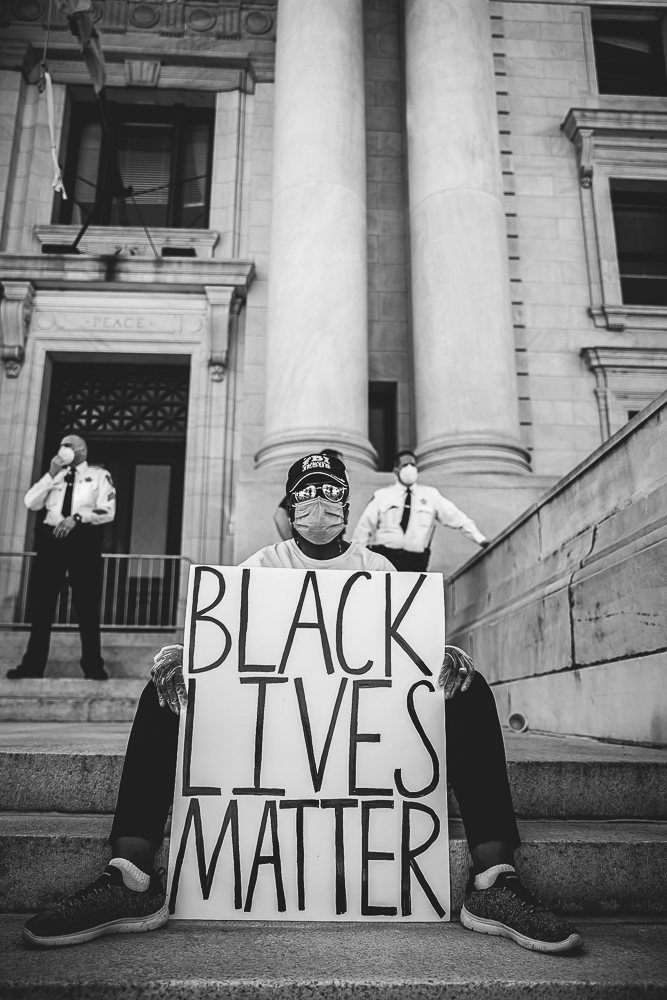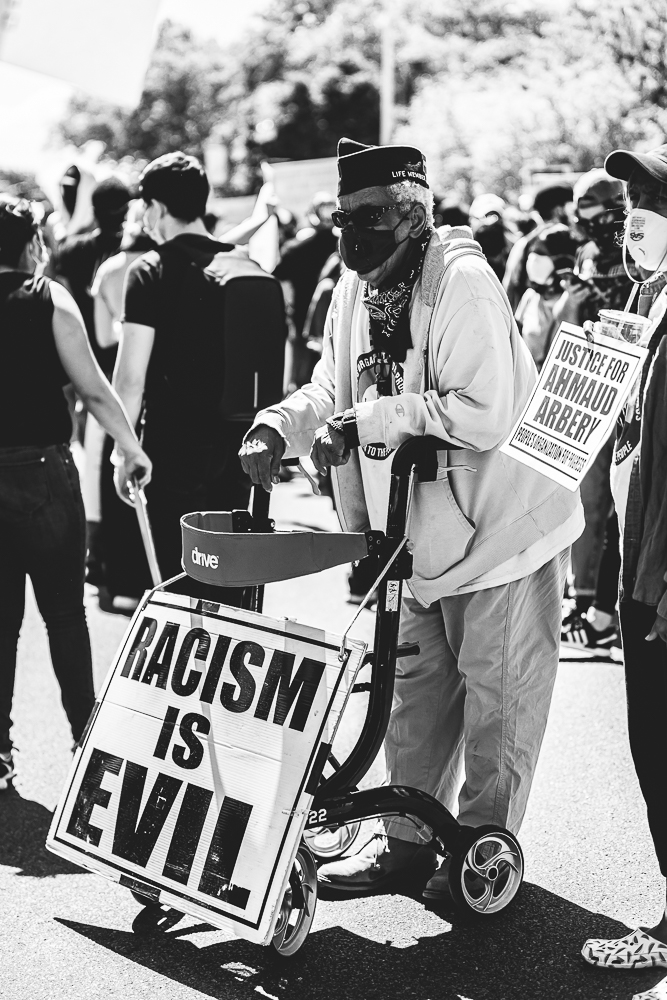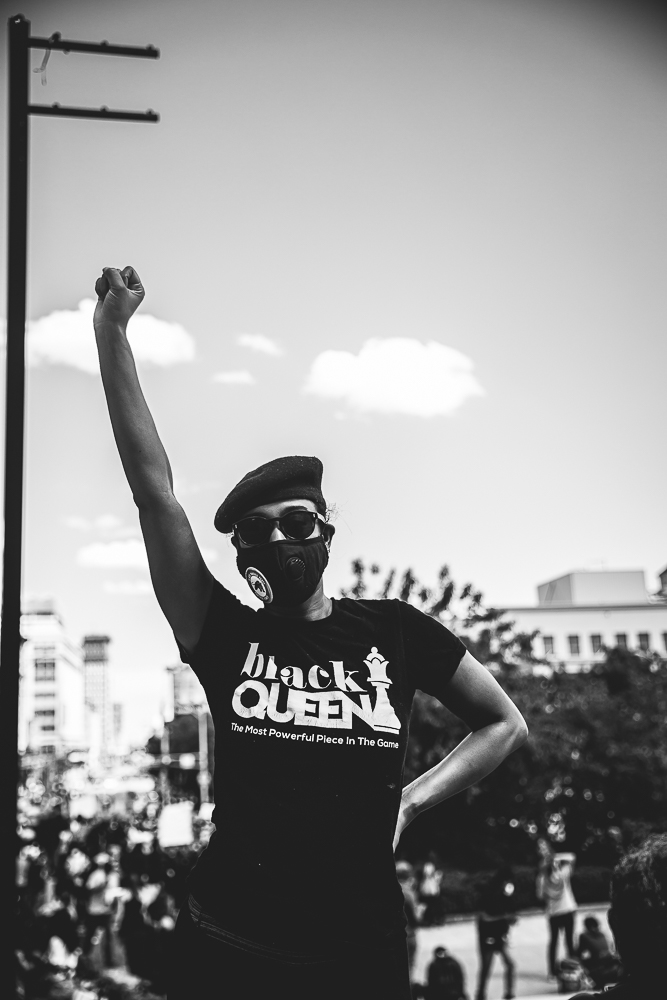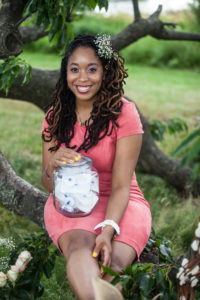Protecting My Joy, Still Carrying Hope: A T1D’s Reflection on Racism, America and the Diabetes Community
All images by my husband, Alfred Sarpeh.
I’m protecting my joy. I’m catching my breath. I took an intentional break from the diabetes online community in June because being black in America is hard. The mental toll of the pandemic was taxing enough, especially as as a member of a vulnerable population. My fears of the impact of COVID on my T1D self, were further compounded when statistics confirmed what I thought to be true. Covid-19 has a disparate impact on black and brown communities, resulting in a higher burden of illness and death for these groups (Coronavirus Disease 2019). While some were stunned by these glaring statistics, I was growing accustomed to the steady flow of RIP posts on my timeline. They humanized these data points. Beloved church mothers were gone. Friends of my parents who watched me grow and became staples of childhood memories were gone. My middle-aged neighbor who always looked out for my brother and I, and an inspiring 32-year old diabuddy and chef, were both gone. All black and all dead because of COVID-19 and structural racism.

Weeks after NYC experienced its peak number of coronavirus cases and deaths, my hope returned. Warmer days, the easing of social distance regulations, and a milestone birthday, left me oozing with joy. But, my excitement was short-lived upon learning that George Floyd had been killed on May 25th. Breonna Taylor, Ahmaud Arbery, and now George. Two of these murders were captured on camera. The viral nature of these videos, coupled with the ways COVID has slowed down our lives—made it undeniable to many (white) Americans what black folks already knew—racism kills.
Racism kills; if not quickly and violently at the hands of law enforcement, then slowly and silently through various social structures. Over-policed and segregated communities, limited access to quality schools, toxic and polluted neighborhoods, food deserts, and implicit bias in medicine are just SOME of the byproducts of systemic racism that cut short black lives. Oh, and trauma. Bearing the emotional weight and stress of these personal and communal injustices—that kills too.

While I’ve been heartened by the awakening of many white Americans and mainstream brands and companies, I am also skeptical. I wonder if our emphasis on #blacklivesmatter will wane once normalcy returns. When entertainment and stores open up again, when we can socialize and celebrate like we used to, when unemployment rates decline, will you still protest and scream that #blacklivesmatter? It’s encouraging that recent social unrest due to the ongoing deaths and maltreatment of black folks has forced mainstream America to look not only at law-enforcement and the criminal justice system, but also at the ways racism shows up in other facets of our lives. Some media outlets, store brands, universities, and long-standing institutions have been forced to reckon with their exclusionary practices, and affirm their commitment to black lives. This is true for many diabetes organizations and companies as well.
In the last few months, I’ve witnessed a multitude of diabetes-related organizations release statements in response to the #blacklivesmatter movement. They’ve run the gamut from the simple, “we stand with you”, to the more complex detailing of specific steps these companies can take to 1.) amplify black voices and 2.) address the disparate impact of diabetes on black and brown communities. While refreshing, I encourage these organizations to critically reflect on measurable outcomes that normalize inclusion and internalize it as a value. Furthermore, I hope these institutions commit to creating solutions in partnership. Inviting marginalized community members to the table is a first-step, but also one where many organizations fail to progress beyond. Are you heeding the input of brown and black community consultants to craft programmatic and vision/mission related-changes, or are their suggestions merely falling on deaf ears? I can go on and on, but in the spirit of self-preservation, I’ll stop here.



It will wane, if we allow it to do so. We have a narrow slice to slip through. So few people understand that protesting for and making change is damn hard.
Our small crack can only be sustained with prolonged and sustained effort. The Vietnam war did not stop in one summer, 3 summers or even 5 summers.
It took years and years of making people uncomfortable before change happens. To be possible, it will take a long haul.
Opposition to Vietnam took 10 years, Same sex marriage took 50 years. Black lives matter? We have been at this business of racism for over 400 years in this county. It will take more than the 50 year we have been at BLM to overcome this scourge. Pray not for the end, pray for the will to keep going. We need ot keep going most important.
My grand son asked me the other day why are people upset about others of a different skin color. I asked him what he taught? He said it is because many are dumb. Yep, indeed. Damn Dumb, if you ask me., I said.